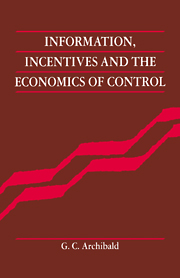1 - Two preliminary matters
Published online by Cambridge University Press: 19 October 2009
Summary
Individualism and holism
It has long been usual to find, at the beginning of a work on welfare economics, a statement to the effect “I adopt the liberal principle that individual preferences are to count: take it or leave it.” I indeed adopt this principle here; but I think that some justification may be in order. Nothing like a complete justification can be attempted: that would require a major work of political philosophy. Nonetheless, we may consider one alternative to individualism, and some difficulties.
In common speech, we often use collectives such as “France,” “the working class,” or the “elderly.” These collectives may be – perhaps usually are – employed simply as shorthand for aggregates of individuals. They may, however, mean more than this. It may be believed that the collective, the group or “whole,” is an entity, and actually exists in its own right. Philosophers call this view “methodological holism.” There are many versions of holism. The version most obviously antithetical to individualism was identified by Popper (1957), and most sharply defined by Agassi (1960). The key is his Proposition 4: “If ‘wholes’ exist, then they have distinct aims and interests of their own.” This is, perhaps, frightening. A holist in this sense may talk, for instance, of the “interest of the state,” or the “national interest,” without at all intending by these terms merely a shorthand for certain collections of individuals.
- Type
- Chapter
- Information
- Publisher: Cambridge University PressPrint publication year: 1992



